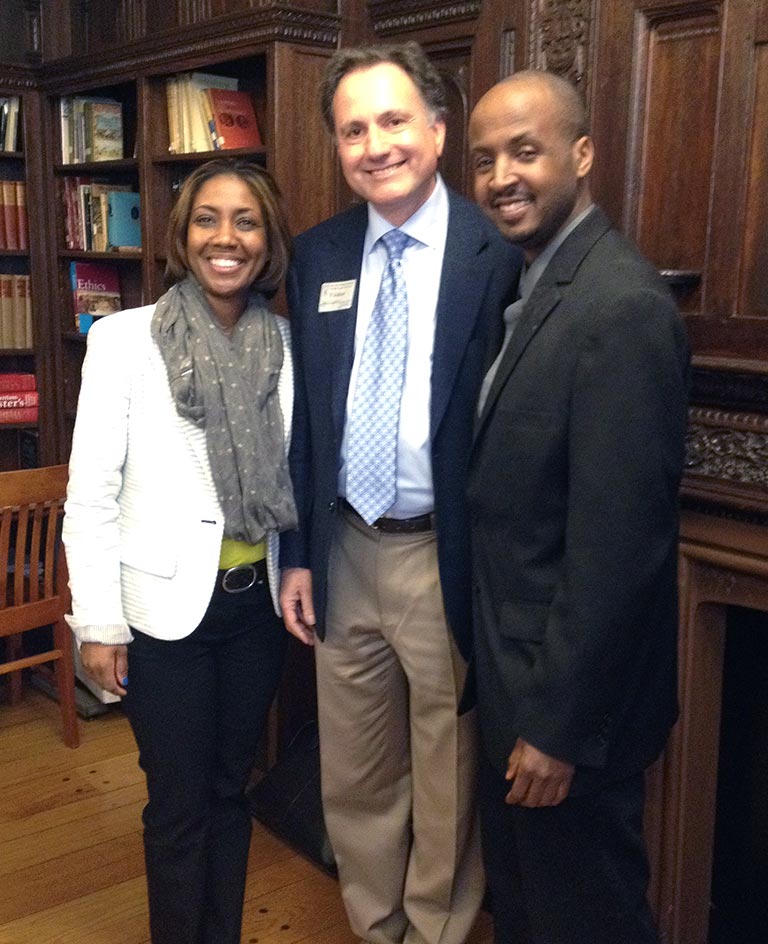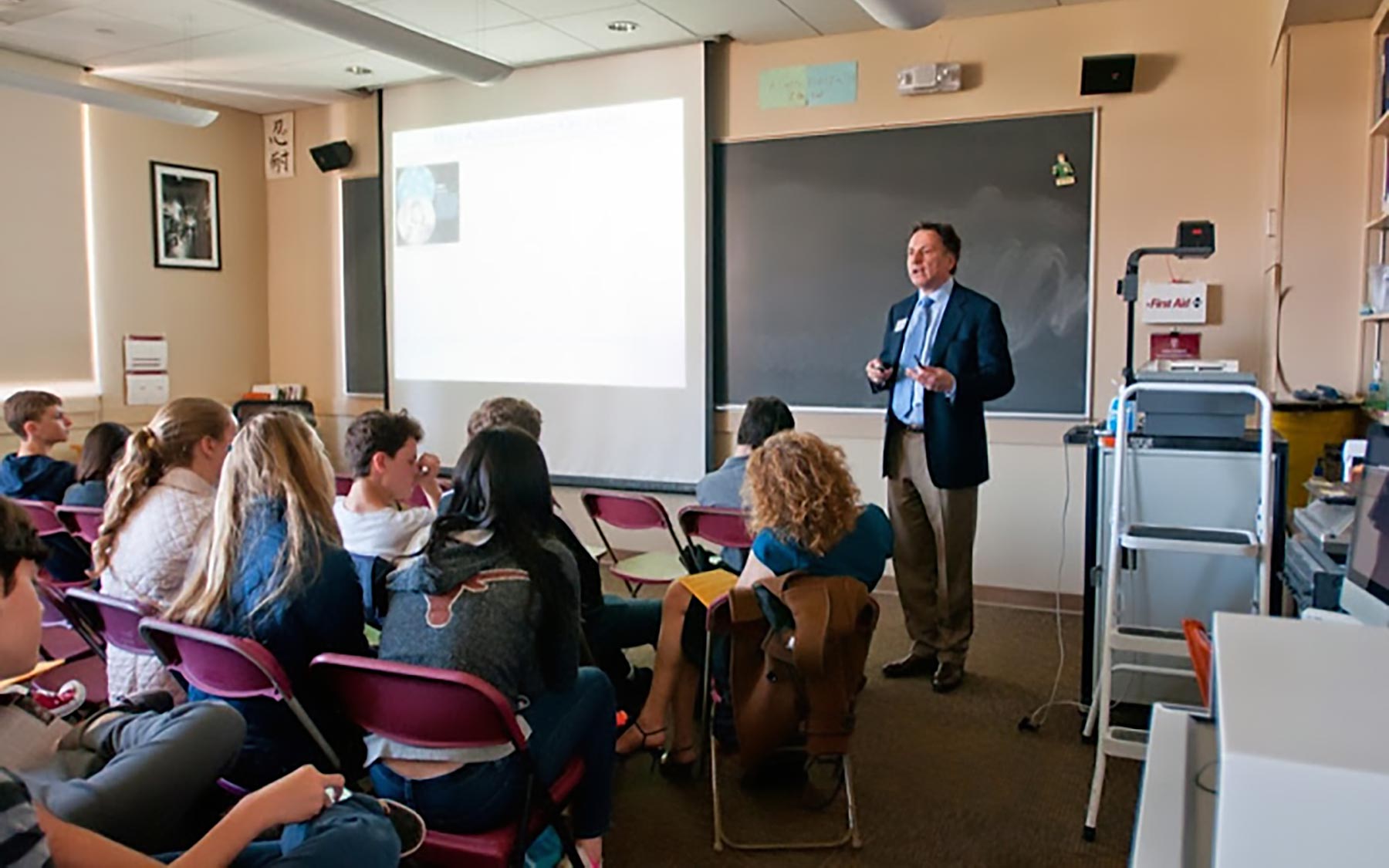This week we welcome CSHL Director of Research, Professor David Spector. Here, he describes his recent visit to the Horace Mann School where he discussed the story of Henrietta Lacks.
A few weeks ago, I had the wonderful opportunity to participate in the Book Day program at Horace Mann School. The day was centered on Rebecca Skloot’s best-selling book The Immortal Life of Henrietta Lacks, which tells the story of a cancer patient and the impressive gift she unknowingly left to science. I was encouraged and impressed to see that the Horace Mann students were totally immersed in the scientific, ethical, legal, and family issues surrounding the story of Ms. Lacks and HeLa cells.The story begins in the early 1950s. Scientists and doctors alike wanted to understand how and why voracious cancers developed, but they were struggling. Within the body, tumor cells multiplied at an alarming rate, spreading like wildfire through vital organs and tissues. But doctors were unable to grow cancer cells in the laboratory.

All that changed in 1951, when Ms. Lacks arrived at Johns Hopkins Hospital in Baltimore with a terminal form of ovarian cancer. During her treatment, doctors removed some of the cancerous tissue. Without consent, which was the standard at the time, they tried to grow these cells in a petri dish. These aggressive cancer cells provided the breakthrough doctors needed. For the first time, HeLa cells, as they are now called, grew in the lab. “HeLa” was a reference, of course, to the woman who unwittingly changed science yet soon succumbed to her illness. Over the last sixty years there have been numerous medical discoveries based on these cells, from tests for the polio vaccine to major new insights into cancer development. Still, the Lacks family remained completely unaware that Ms. Lacks’ cells lived on in laboratories across the world.
The story of Ms. Lacks raises many moral, legal, and scientific questions. At Horance Mann, students and educators approached these issues in a most innovative way, with intense workshops and discussions, fabulous questions, and even song, dance, and art. This program was comprehensive and broad-reaching, educating 9-12th graders with diverse interests.
We were extremely fortunate to have members of the Lacks family participate in the discussion at Horace Mann School. They graciously shared some of their personal experiences with us.
The day closed with a conversation between Marc Siegel, Medical correspondent for Fox News, and myself. We put the whole HeLa story into context, then and now, and discussed cancer, current treatments, where things are going, and the impact of genome sequencing (pdf).
This fantastic program was an excellent example of the forward-thinking education that makes science accessible for students. The faculty and students did an amazing job! (Read what students and faculty thought about the day.)
